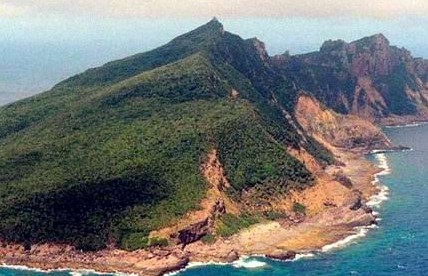Options and rules of economic sanctions against Japan
- By Mei Xinyu
 0 Comment(s)
0 Comment(s) Print
Print E-mail China.org.cn, September 24, 2012
E-mail China.org.cn, September 24, 2012
|
Diaoyu Islands |
The dispute over the sovereignty of the Diaoyu Islands has already escalated to the point where economic sanctions may be an option for policy makers and the public. As the significance of the Japan market for China's international trade is relatively low and continues to decline, and Japan is a nation with an externally-oriented economy, China is capable of making Japan pay much more in trade war. But with such sanctions against Japan, we should consider the situation thoughtfully to minimize the risk while still achieving the intended benefit.
The foundation of economic sanctions against Japan
Definitely, China is capable of doing more damage to Japan with economic sanctions than it would inflict on itself. Generally, the importance of Japan in China's overall trade volume has declined. From 1993 to 2003, Japan was China's largest trading partner, but this was eclipsed by the European Union and the US in 2004, and later fell behind ASEAN.
In 2011, China and Japan traded goods worth US$342.9 billion, 9.4 percent of China's US$3.6 trillion in total trade that year. Exports to Japan made up 7.8 percent of total exports by value, and imports from Japan reached 11.2 percent of the value of total imports. In contrast, Japanese exports to China, according to the statistics from the Japanese side, made up 19.7 percent of its total export value in 2011. The Chinese customs statistics show that in 2011, China's imports from Japan reached 23.7 percent of Japan's total export value while China's exports to Japan made up only 17.4 percent of Japan's total import value. Due to this imbalance, Japan stands to lose much more than China in a trade war.
If direct investments into China are obstructed, the development and survival of the Japanese industry, which is suffering from issues regarding transformation and relocation, will be damaged greatly. After the devastating March 11 earthquake last year, which wrecked havoc on Japanese industry, many Japanese technology or capital intensive businesses which were not willing to transfer production to China previously are now seeking a niche overseas.
In practice, the economic sanctions against Japan made by China have damaged Japan significantly. In 2001, after Japan took import restriction on scallions from China, China levied a 100 percent retaliatory tariff on Japanese cars and mobile phones. This action caused chaos in their respective industries in Japan.






